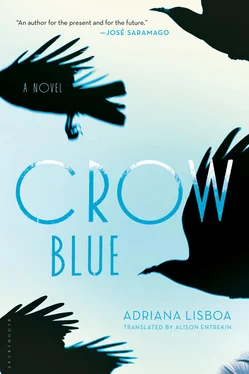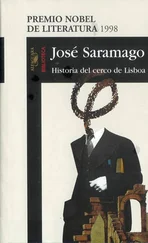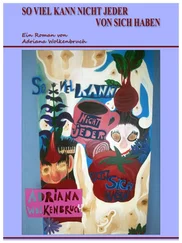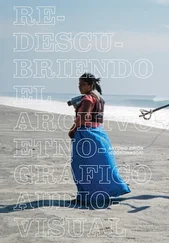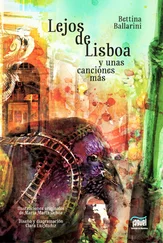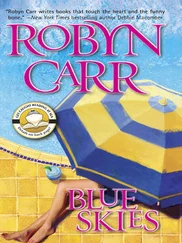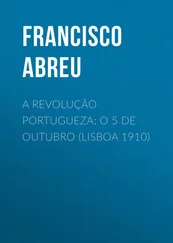In Rio, my mother also taught English and Spanish. And Portuguese to foreigners. She said it was a Wild-Card Profession and she said it like she meant it. Anywhere in the world, there would always be people wanting to learn English and/or Spanish. And Portuguese — Portuguese would increase its sphere of influence after Brazil showed the world what it was made of.
You’ll live to see it, she’d say, straightening her back and lifting her chin as she spoke, as if defying the very air in front of her to contradict her.
When we went to live in Brazil, she became a nationalist. An advocate of all things Brazilian, among them the language we had inherited from our European colonizer and acclimatized, and which she came to consider the most beautiful in the world.
It was the 1990s and she voted in the presidential elections . All Brazilians of age voted in the presidential elections . They were still getting used to this degree of democracy, but they’d get there one day, she’d say. We’ll get there. If I hadn’t been such a small child at the time, I might have asked how, if the first thing that the first democratically elected president in three decades had done, on his first day in office, was to confiscate the money in people’s savings accounts. He promised it would be returned at a later date. This happened a year before we returned to Brazil and my mother hadn’t felt the brunt of it, but Elisa no doubt ranted and raved and uttered swear words that I could have memorized for future reference if I’d been present and able to understand her. But, at the end of the day, they were adults and should have known what they were doing, electing, confiscating, swearing.
My mother and I never returned to Albuquerque together. In fact, we never returned to the United States together.
Firstly, because she no longer got paid in US dollars for her lessons, and in Brazil human resources were pretty cheap, even perfectly trilingual human resources, so the trip was too expensive for our new green and yellow more-or-less-underpaid pockets.
Secondly, because my mother wasn’t one to retrace her steps. When she left, she left. When she walked out, she walked out.
In the long summer holidays, we always went to Barra do Jucu, in the state of Espírito Santo, where my mother had friends. We’d climb into her Fiat 147 and some seven hours later we’d arrive, weary and happy, and along the way my mother would listen to music and sing along, and we’d stop at diners that smelled of grease and burnt coffee to use restrooms that smelled of urine and disinfectant, where a very fat employee sat crocheting and sold crocheted doilies and underwear next to a cardboard box that said TIPS PLEASE.
My mother would play Janis Joplin and turn up the volume and stick her head out the window of her Fiat 147 and sing along:
Freedom’s just another word . .
Even when I didn’t understand the words, I was hypnotized by my mother’s trance. She seemed like another woman, which fascinated and frightened me. Her voice had a hoarseness exactly like Janis Joplin’s and I wondered why some people became Janis Joplin and others became my mother.
You sing just as well as Janis Joplin, I once told her.
The only thing we have in common is that her dad worked for Texaco, she replied. You know. Oil.
When I was informed that Janis Joplin had died in 1970, almost two decades before I was born, I was indignant. I had thought Janis Joplin was my contemporary, and that she was singing “Me & Bobby McGee” somewhere on the planet, while my mother, who was everything Janis Joplin hadn’t been, who was her opposite, her antimatter in another dimension, was sticking her head out the window of the car that wasn’t a Porsche painted in psychedelic colors and belting out what she could to the scalding-hot asphalt of the highway.
In Barra do Jucu, my mother sometimes went out dancing at night, or to meet someone for a few beers.
Two of these someones became boyfriends who lasted a few summers. One of them came to visit us in Rio. The other one lived in Rio, was a surfer and had a five-year-old boy whom I envied, secretly and angrily. In Rio and Barra do Jucu, my mother’s boyfriend started teaching me to surf, but then things between them ground to a halt. He called me for a few months to ask how things were going and to try to discover, between the lines, if my mother had met someone else, and if this someone else seemed more likable than him, and why. I became the surfer’s ally, but it was no good. One day he stopped calling, and I stopped surfing.
My mother’s friends in Barra do Jucu also had young kids. We liked to watch the crabs in the mangrove swamp right behind the house — the crabs held a terrible fascination for me and, though horrified and disgusted, I couldn’t keep my eyes off their slow, muddy walk, those lone monks in their long meditative trances. The other kids and I changed from pajamas into beachwear and from beachwear into pajamas, after a hose-down at the end of each day. Someone always butted in with a bar of soap and a bottle of shampoo: growing up is a drag. But I was violently happy there, and returned from Barra do Jucu when the holidays were over with skin the color of dark wood, almost like the jacaranda table in our living room.
Elisa used to call me her little caramel girl. Elisa was my mother’s foster sister.
My family’s genealogy is confusing and simple at the same time. My grandmother brought up Elisa as if she were her own daughter. Later my mother was born and then my grandmother died, and when my mother went to Texas with my grandfather, Elisa stayed in Rio. She was all grown up, sixteen years old, and had a job and a fiancé who would never become her husband but was a fiancé nonetheless, which was better than nothing. Unlike his real daughter, she never severed ties with the man who had brought her up, though she never saw him again either, because there was an entire continent between them, and when my retired-geologist Brazilian grandfather died of a Texan snakebite on Texan soil at the age of sixty-seven, she was the one who broke the news to my mother, all the way from the southern hemisphere.
Elisa was the daughter who had accidentally sprung from the womb of my mother’s mother’s maid. There was no father in the picture. The mother died in childbirth.
I’ll bring her up, said my grandmother, and that was how Elisa came into the family.
But she’d always be the maid’s daughter, and this original sin, this hybridism with the dark world of the servant class, in a caste system deeply rooted in Brazilian society from day one, set her apart from my mother, who went to the United States, while Elisa stayed behind after my grandmother’s death. If she nursed any hurt feelings like tiny secret jewels at the bottom of a drawer, she never let on to me. Later she studied to be a nurse and got a job in the public service and broke off her engagement because her fiancé kept stalling. According to Elisa, it was better to be alone than in a dead-end relationship.
As for me, when someone asked me what I wanted to be when I grew up the only things that occurred to me were occupations that took place on a strip of sand with waves breaking against it. Empada vendor? Thus, the years spent in Copacabana and Barra do Jucu, with the powerful machine known as the Fiat 147, suited me one hundred percent. And except for a living Janis Joplin, I wanted for nothing, ever.
But there were still the Spanish and English lessons. This way you’ll get work anywhere in the world, my mother used to say.
And I’d mentally recite:
¿Es el televisor?
No, señor (señorita, señora), no es el televisor. Es el gato.
I didn’t want to work anywhere in the world explaining to people that cats weren’t TVs. But putting up resistance to the transmission/imposition of knowledge was pointless.
Читать дальше
